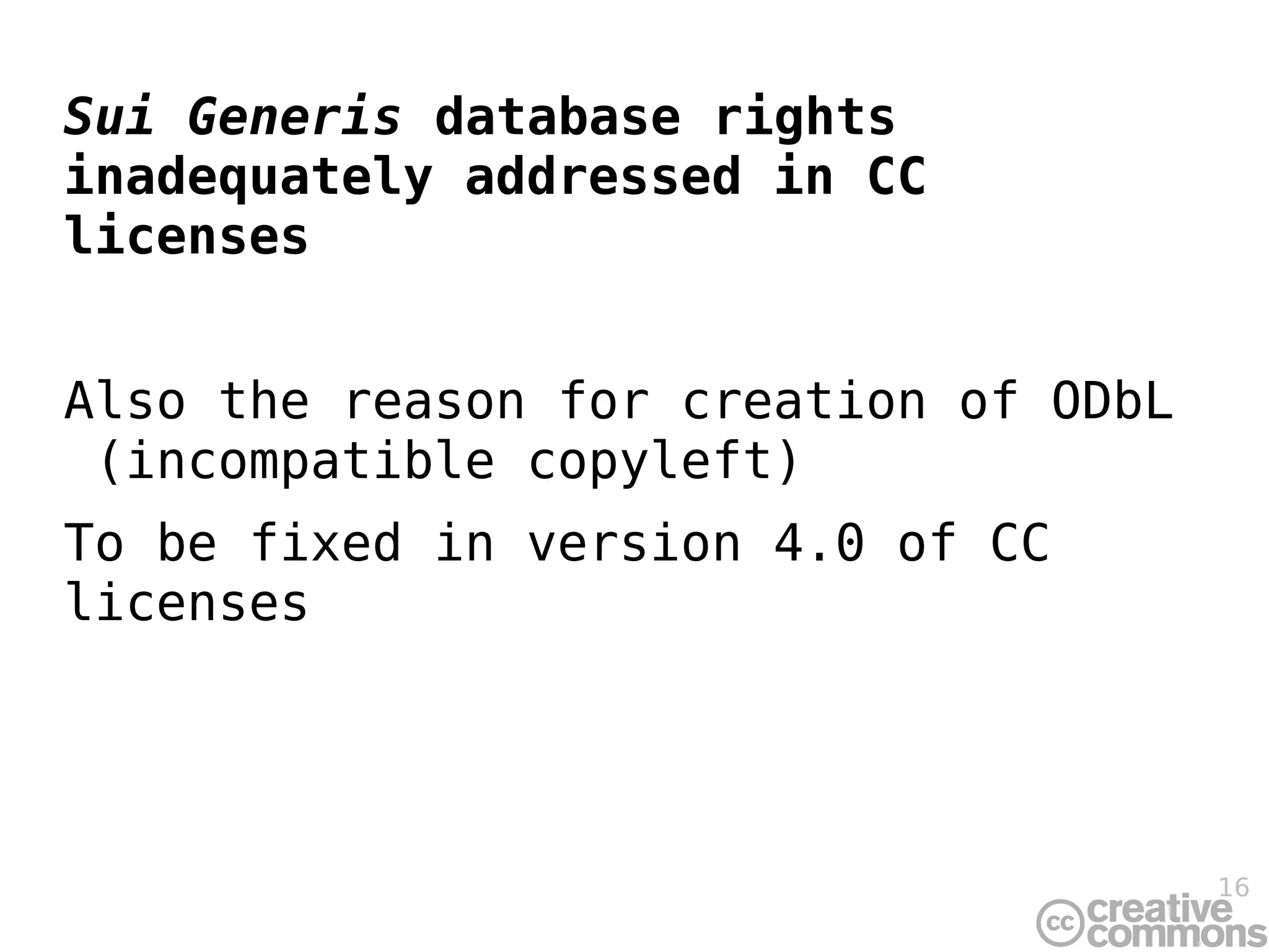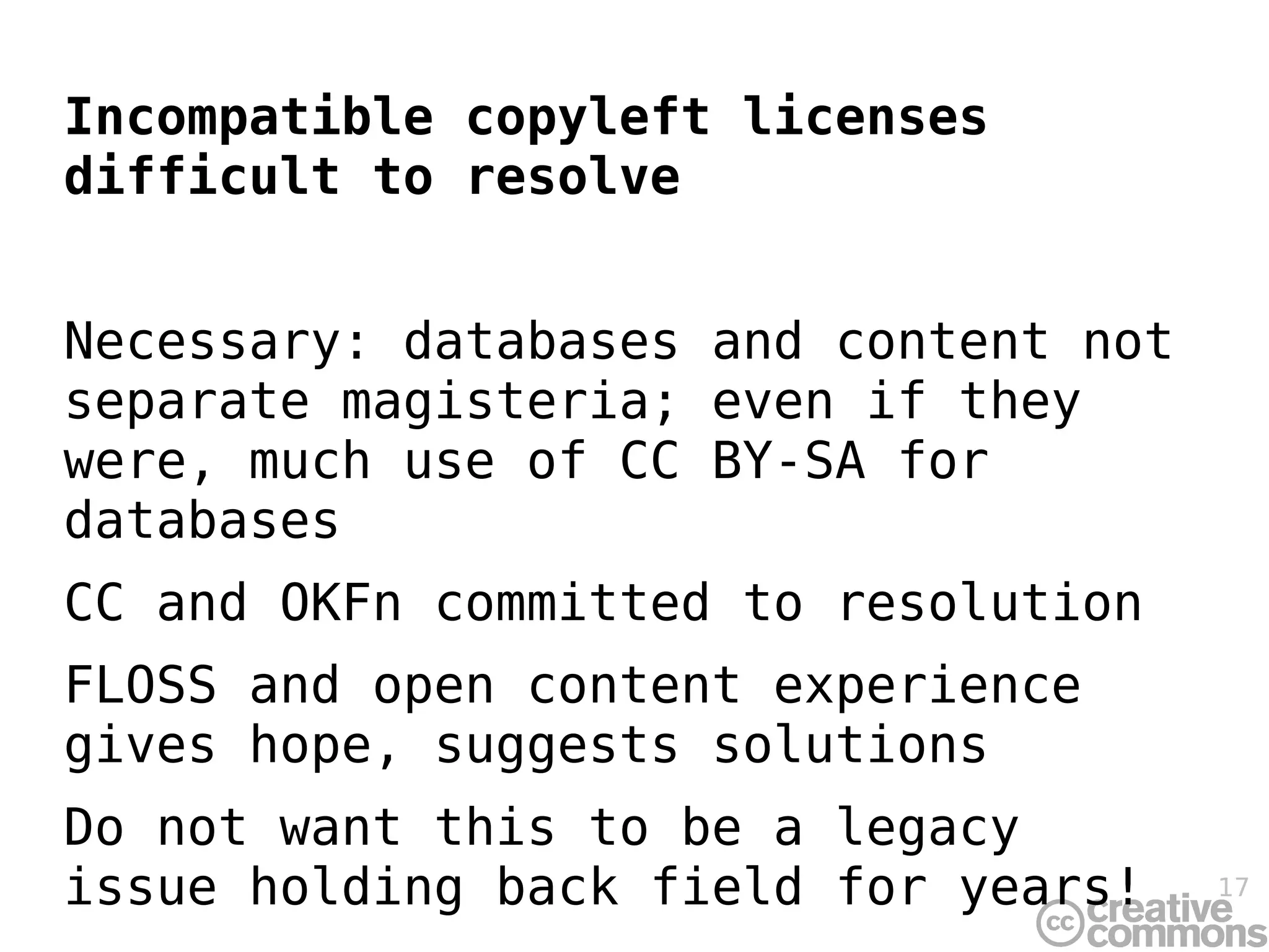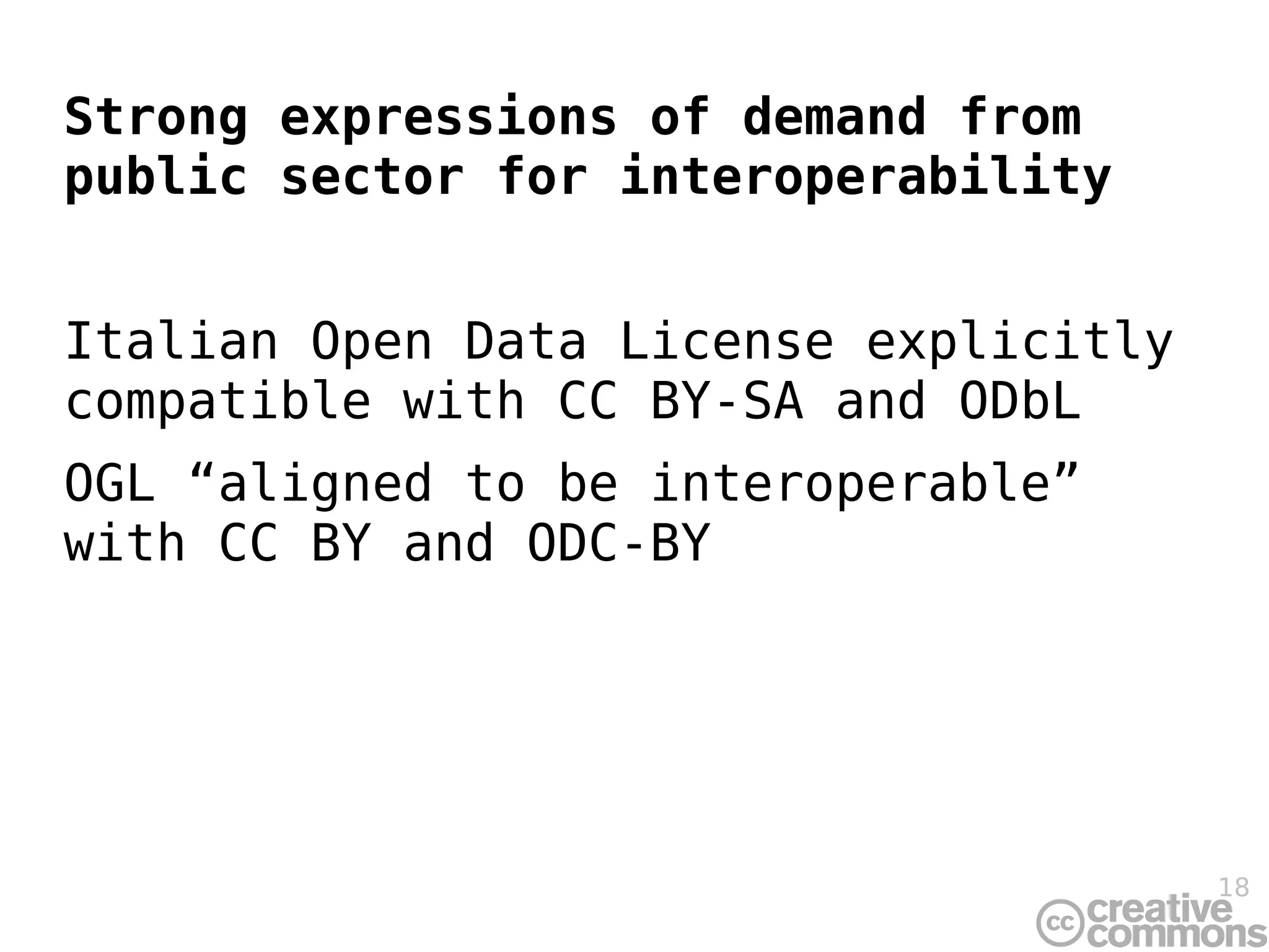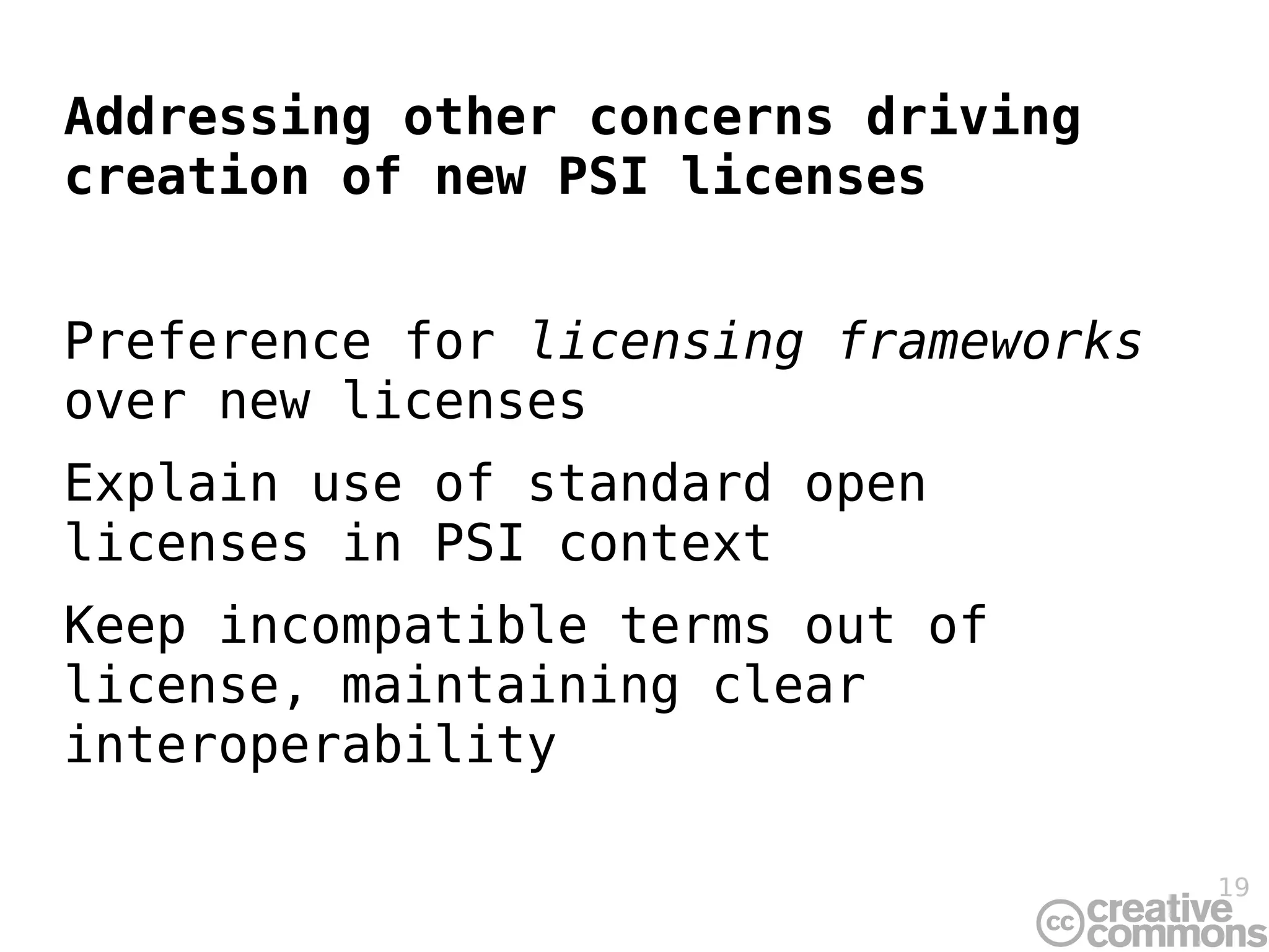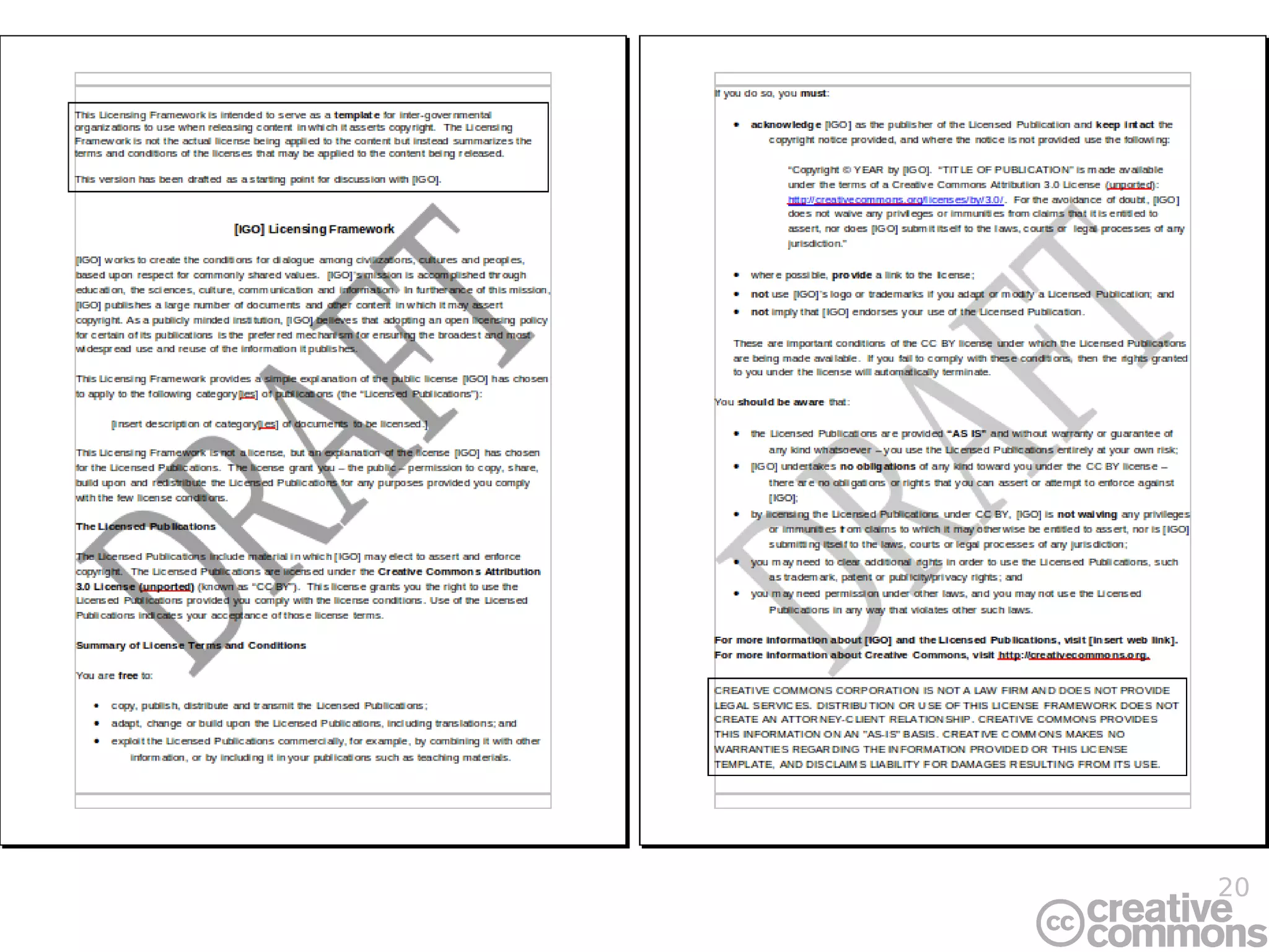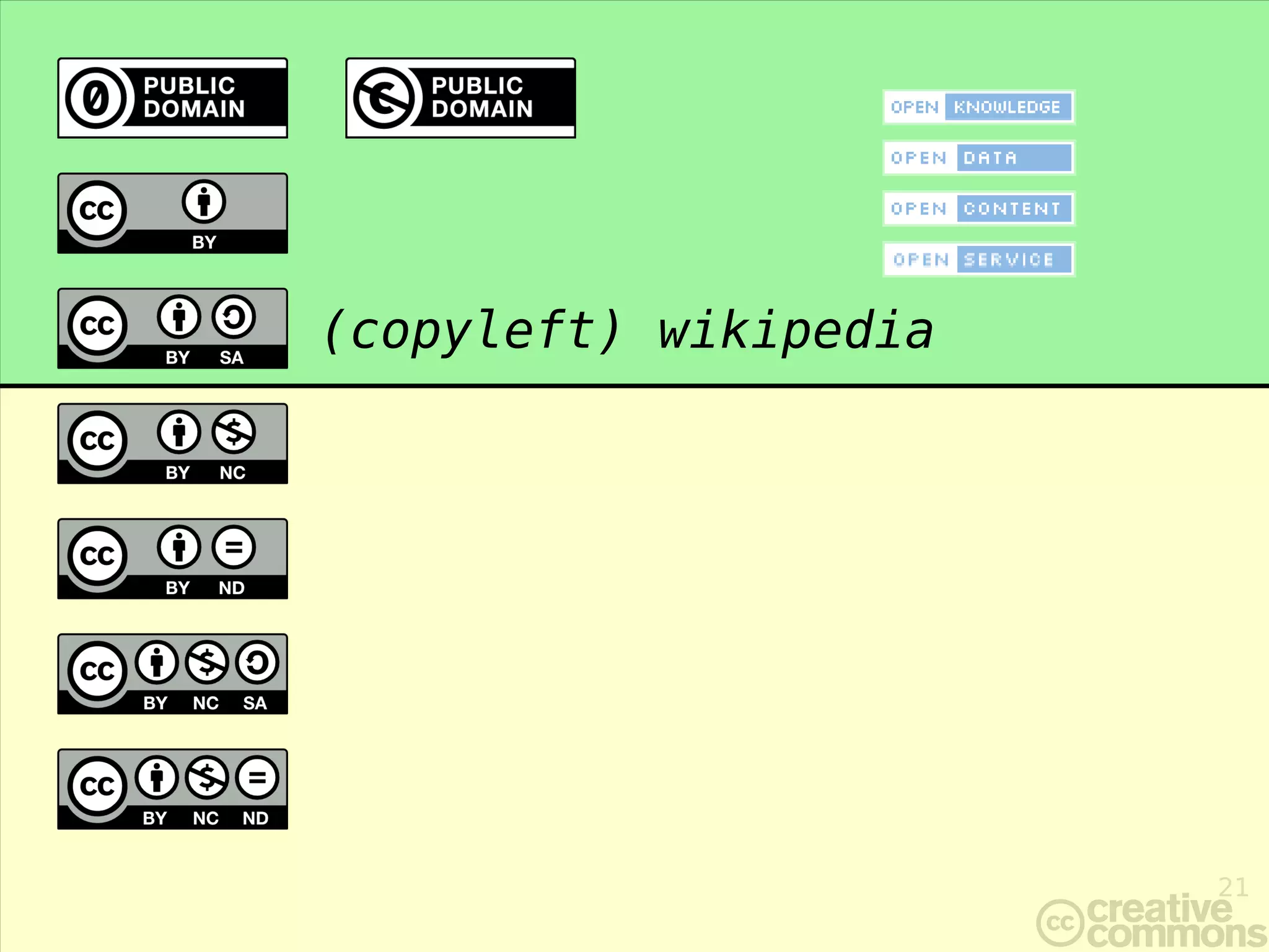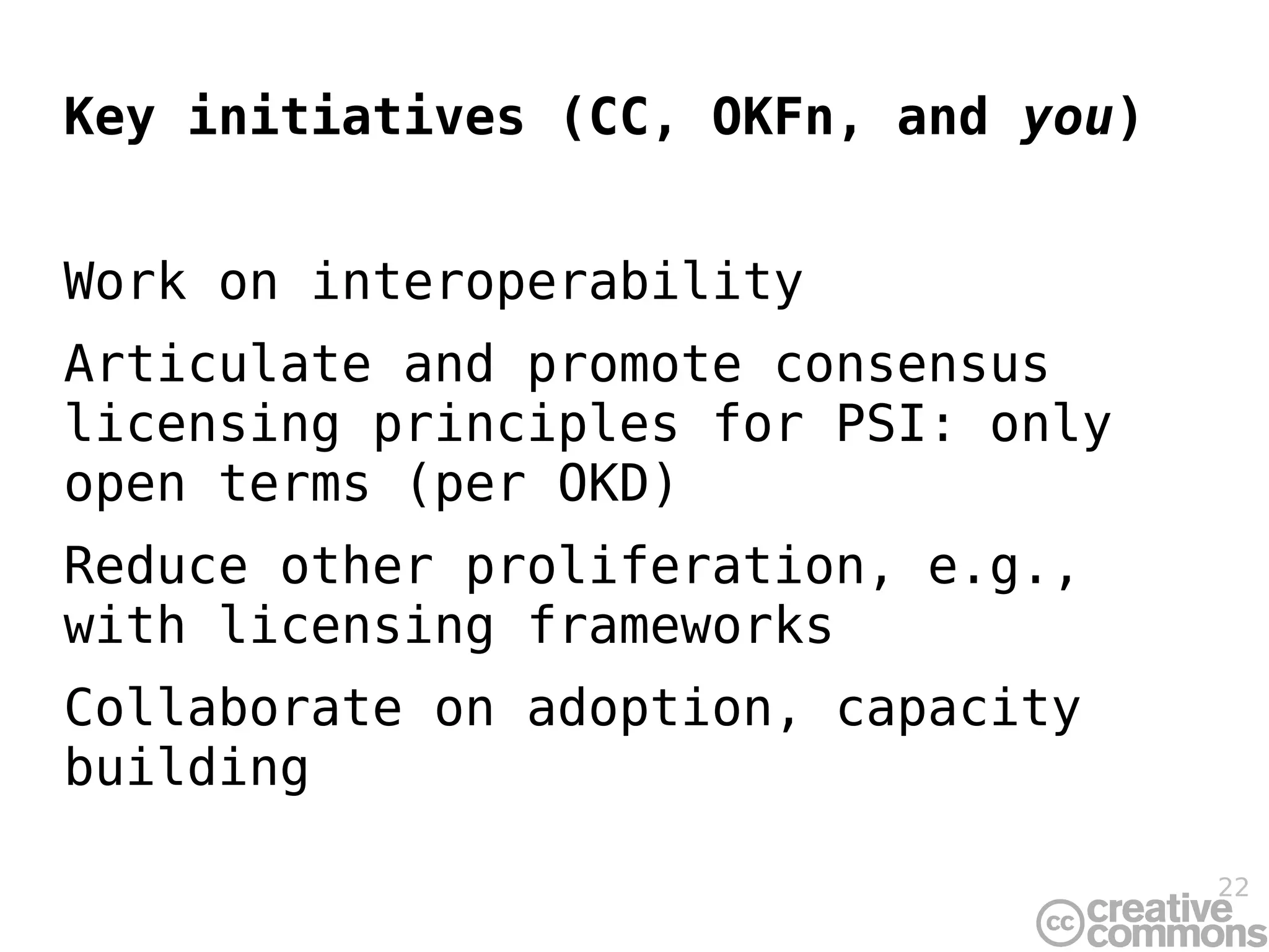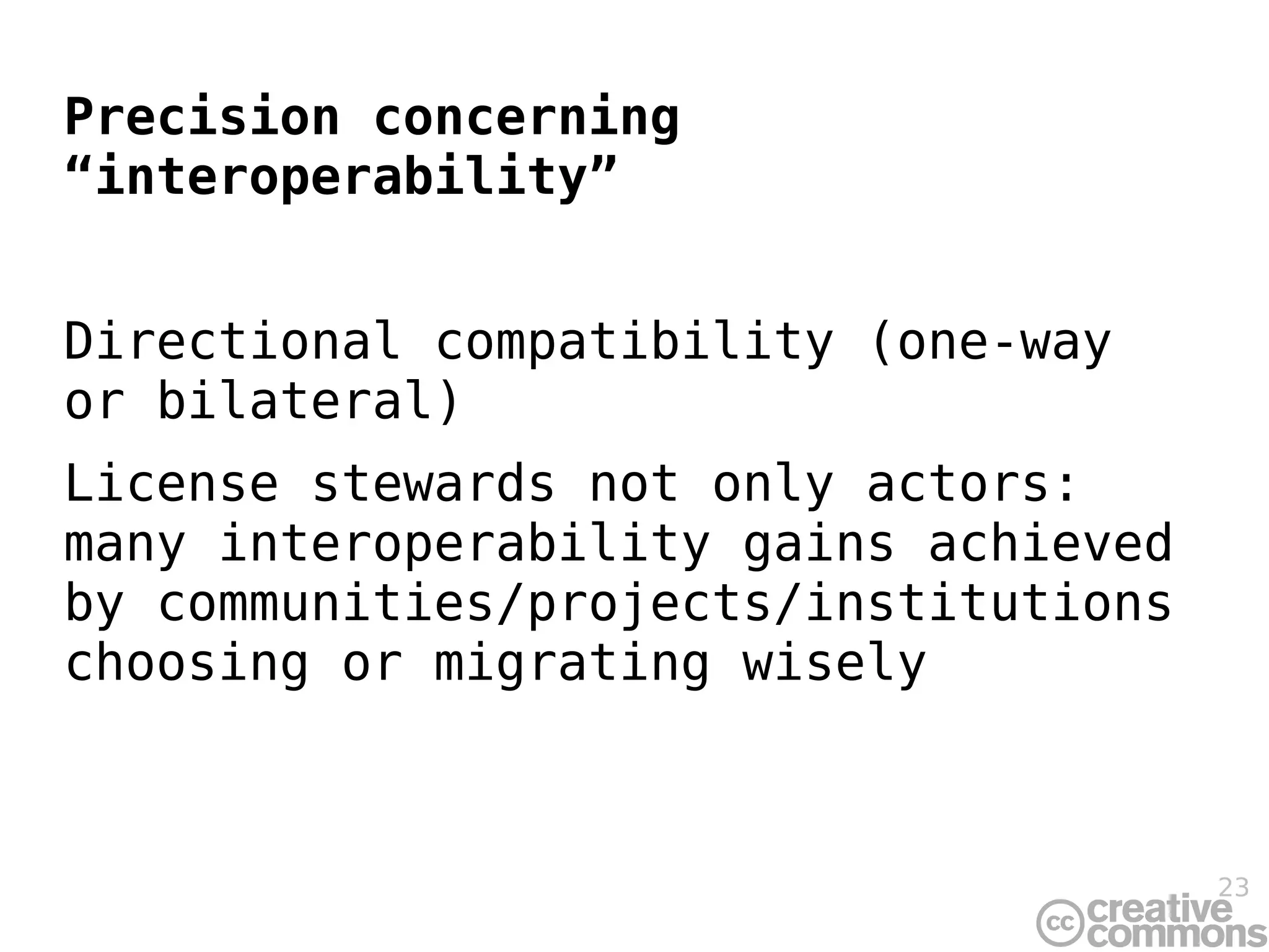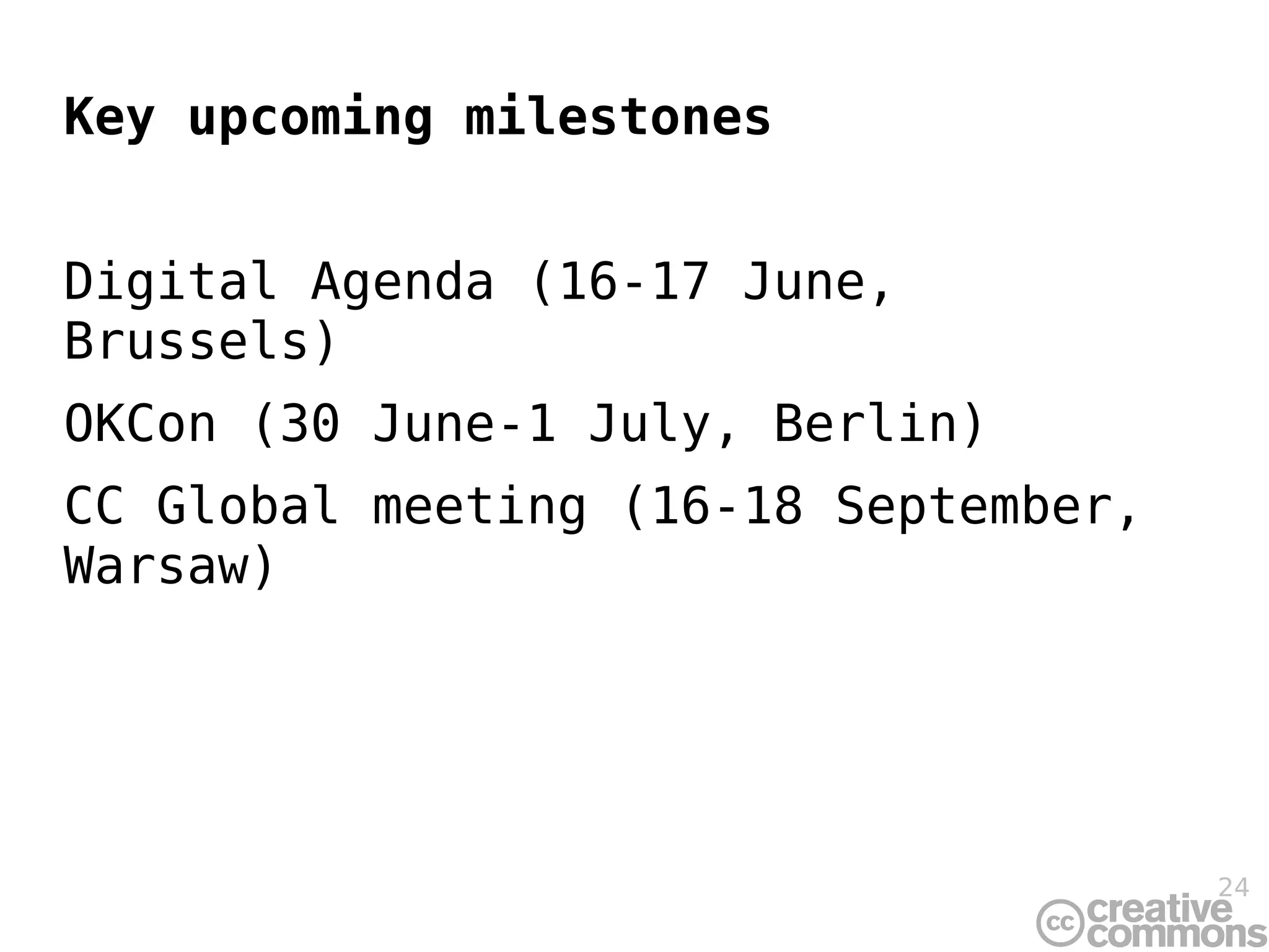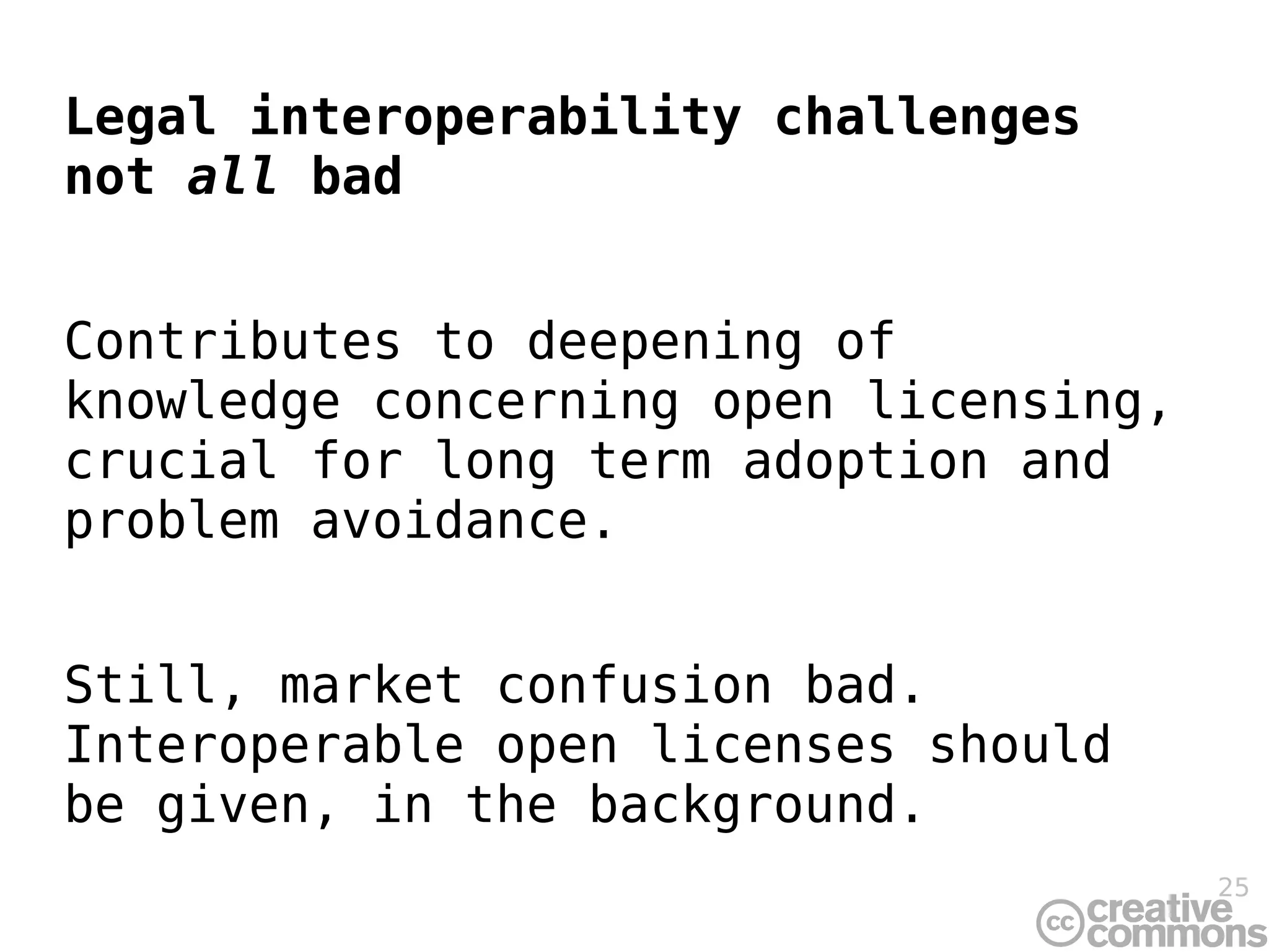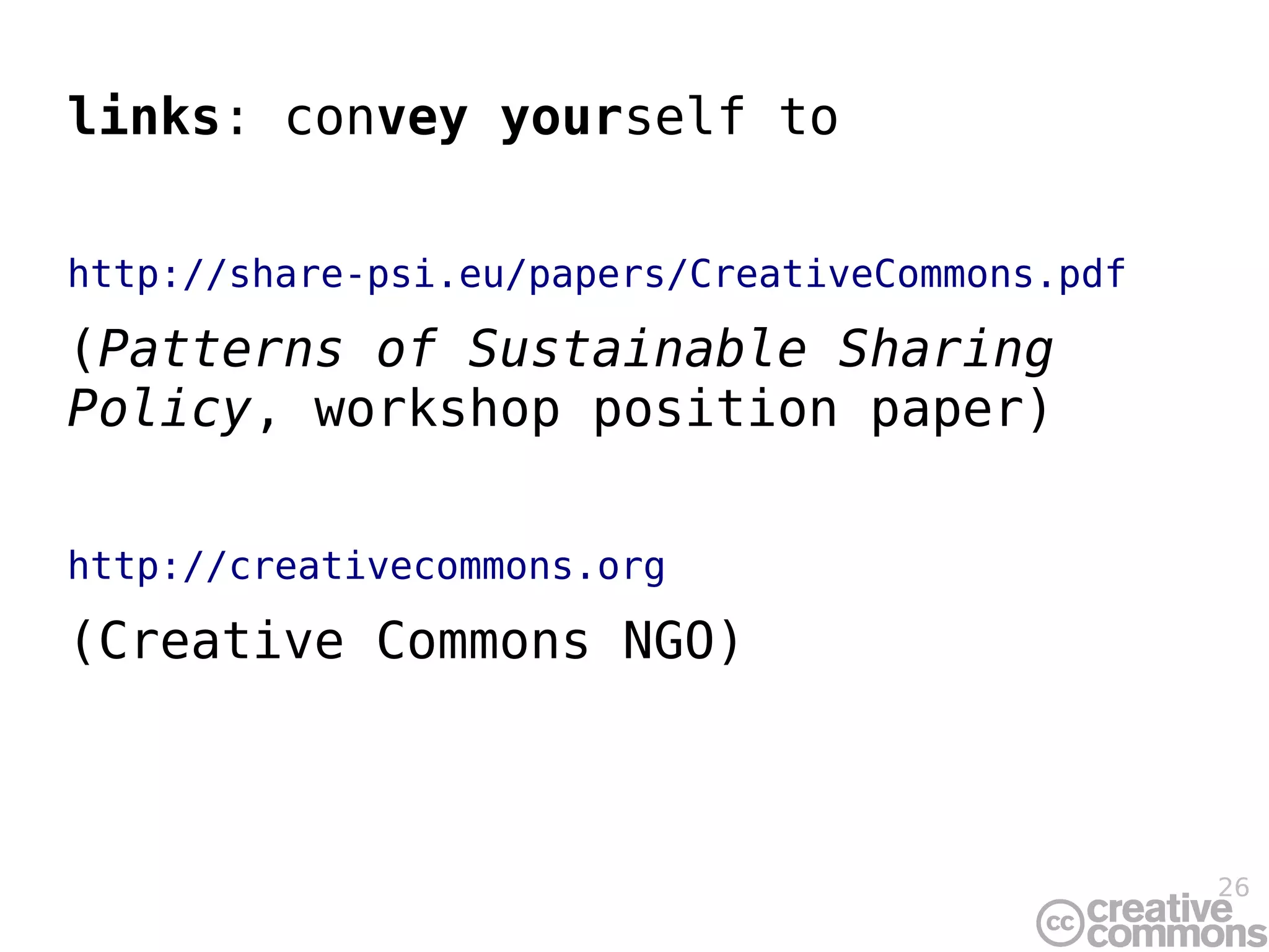This document summarizes a presentation on license interoperability for public sector information (PSI) reuse. It discusses how open source software and open content have progressed toward interoperable licensing over the past 25+ years, but challenges remain including incompatible copyleft licenses and a proliferation of custom licenses. Key initiatives like Creative Commons and Open Knowledge Foundation are working to address these issues and promote consensus licensing principles that only include open terms to facilitate greater interoperability and reuse of PSI. Upcoming milestones that could impact licensing include events focused on the EU's digital agenda and open knowledge.
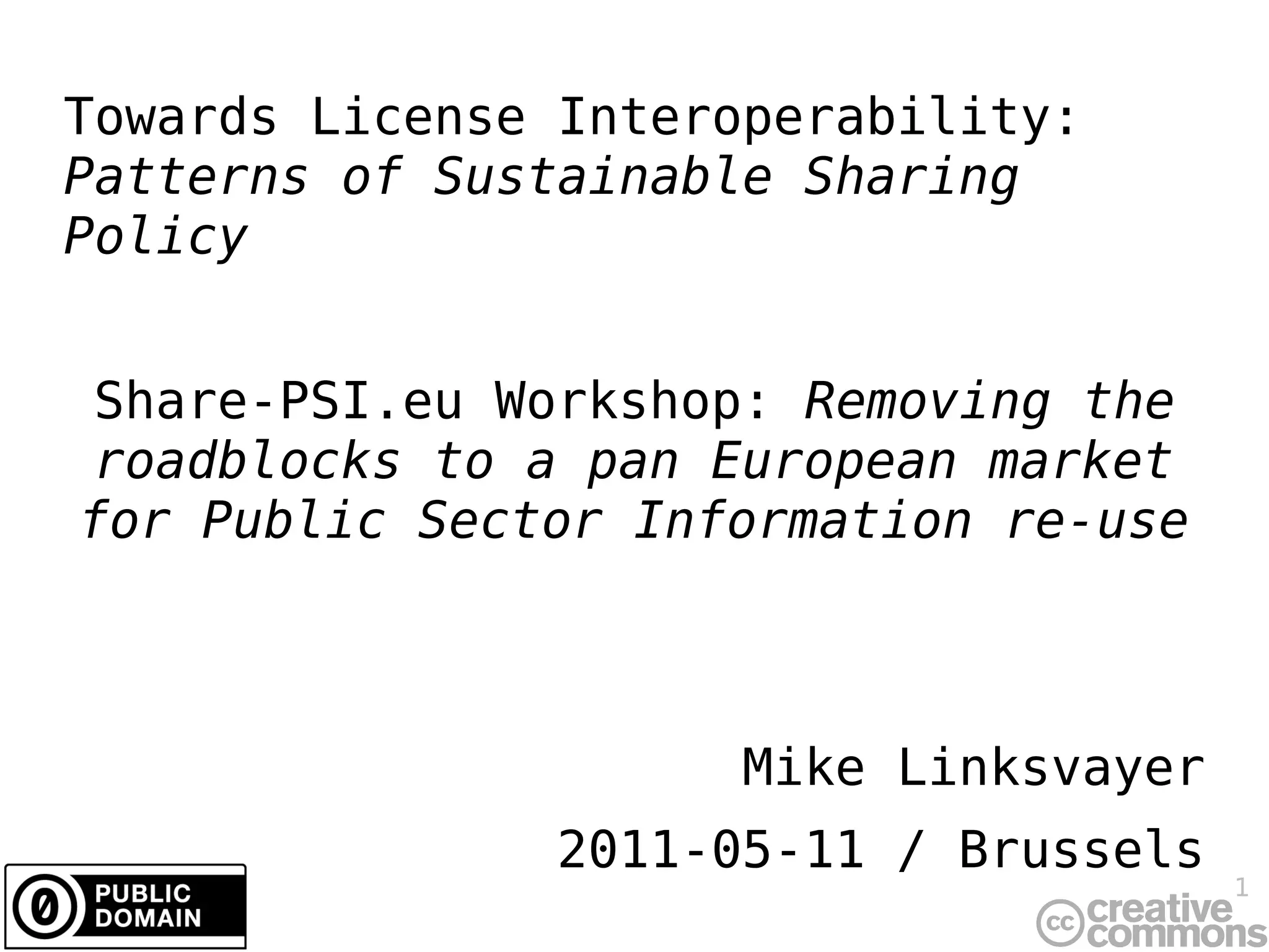
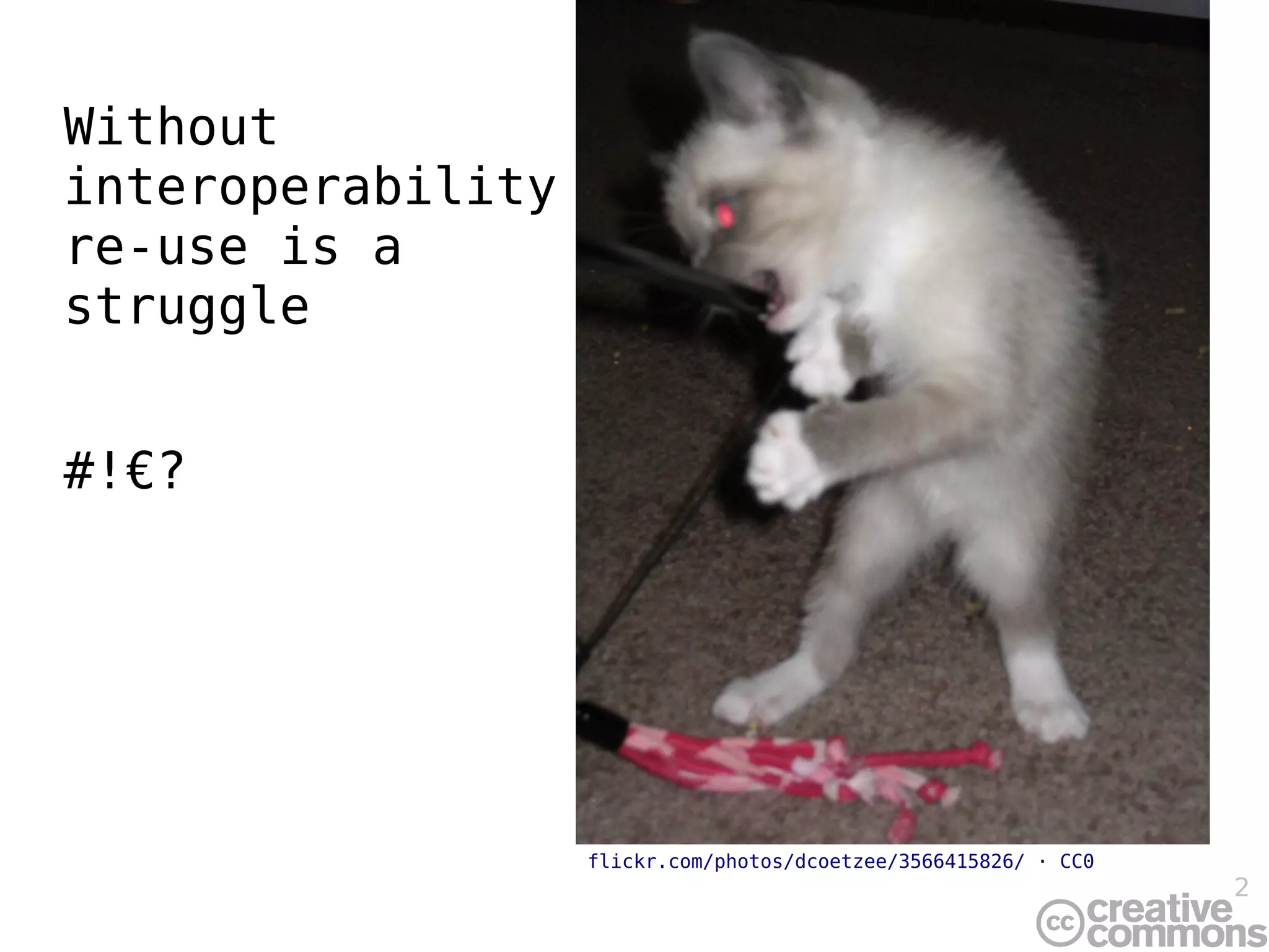
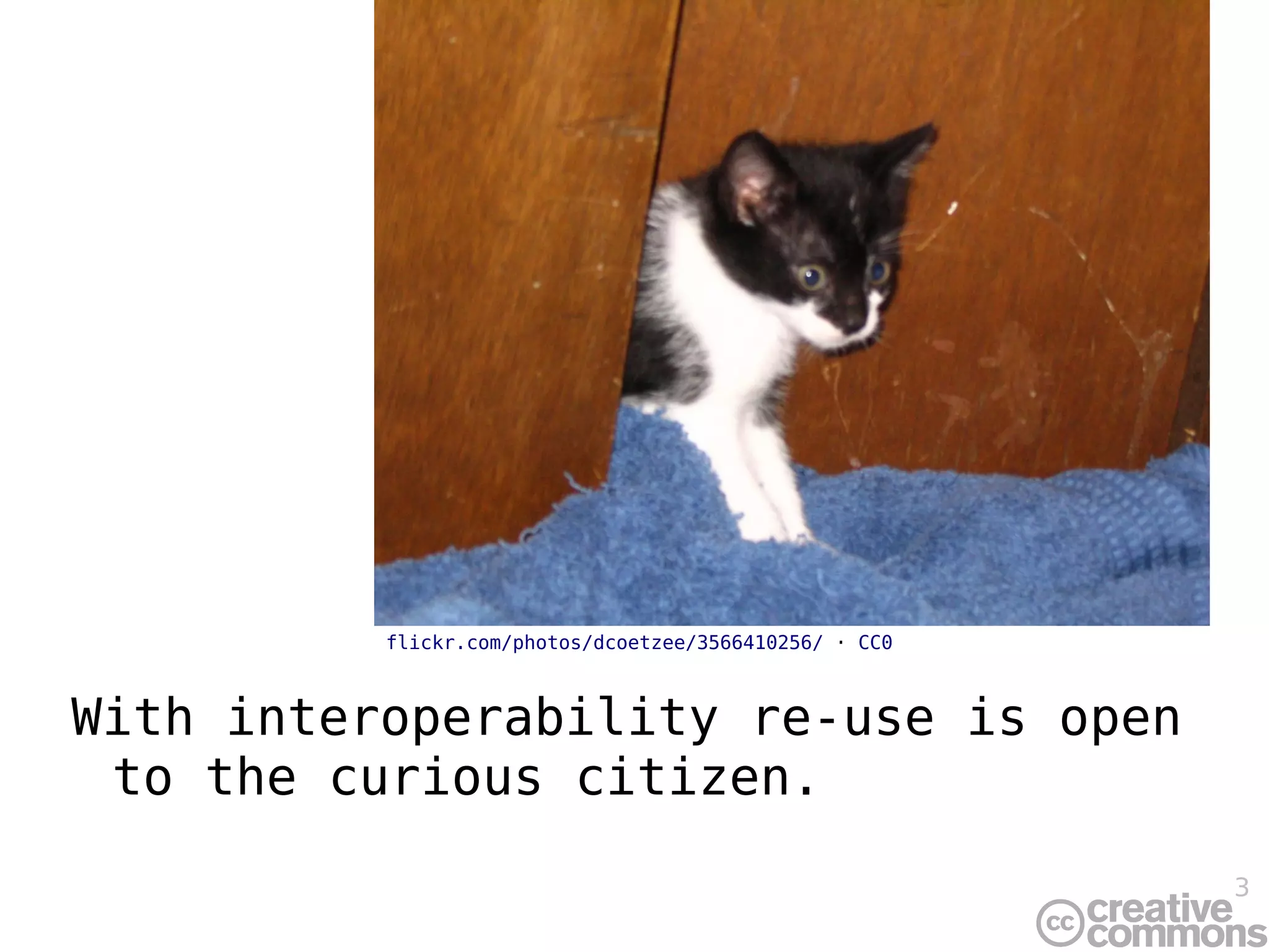
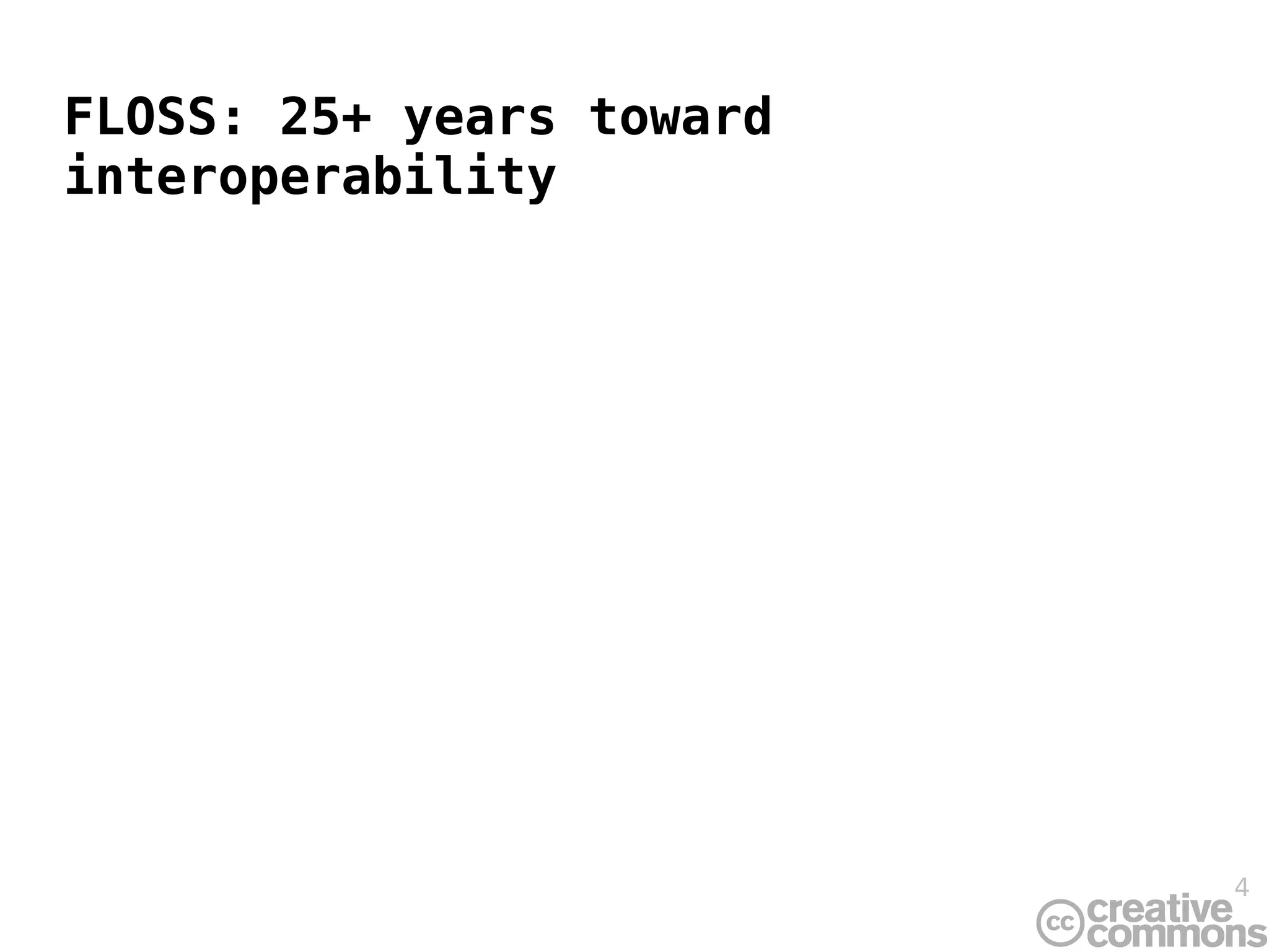
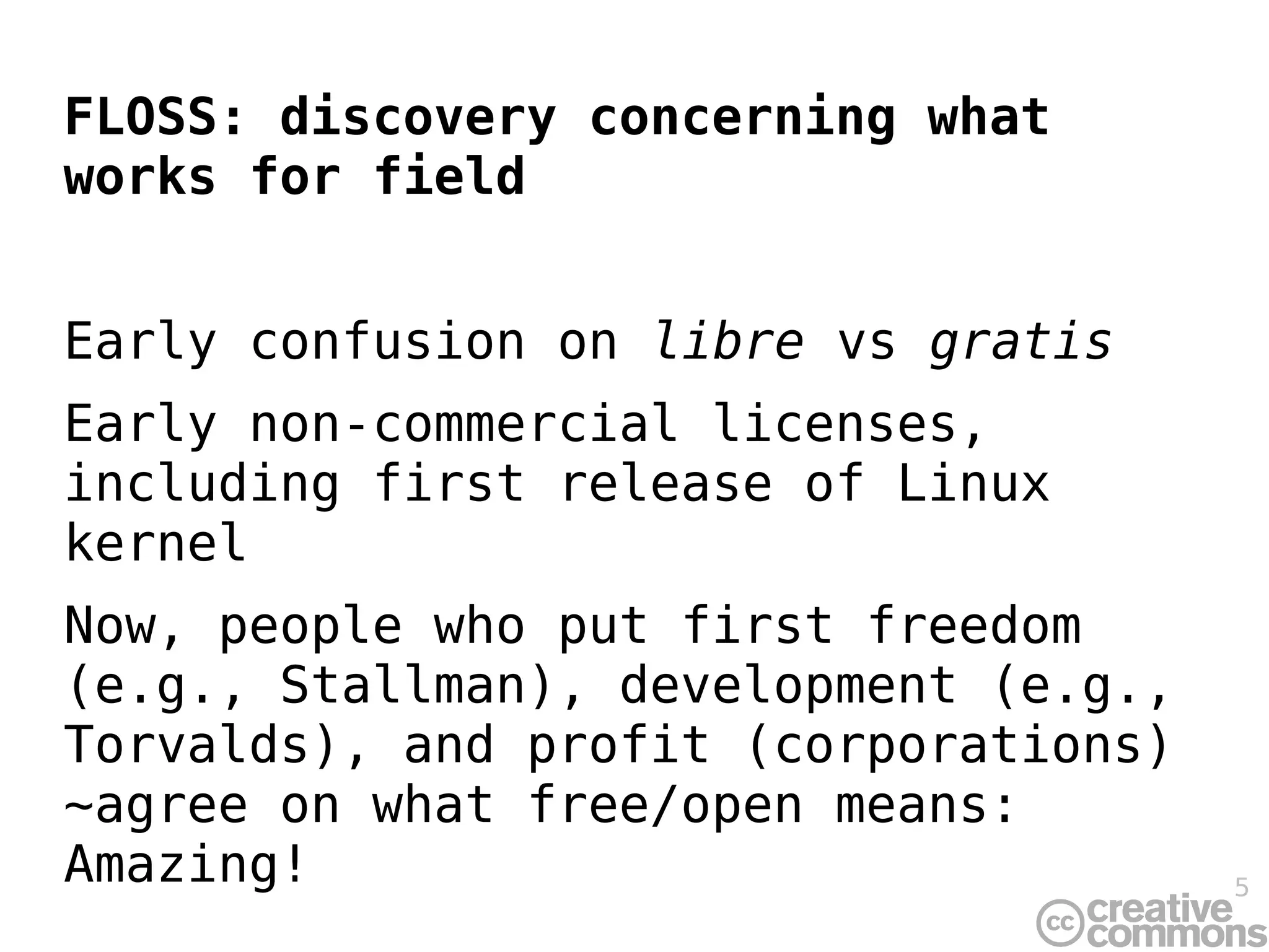
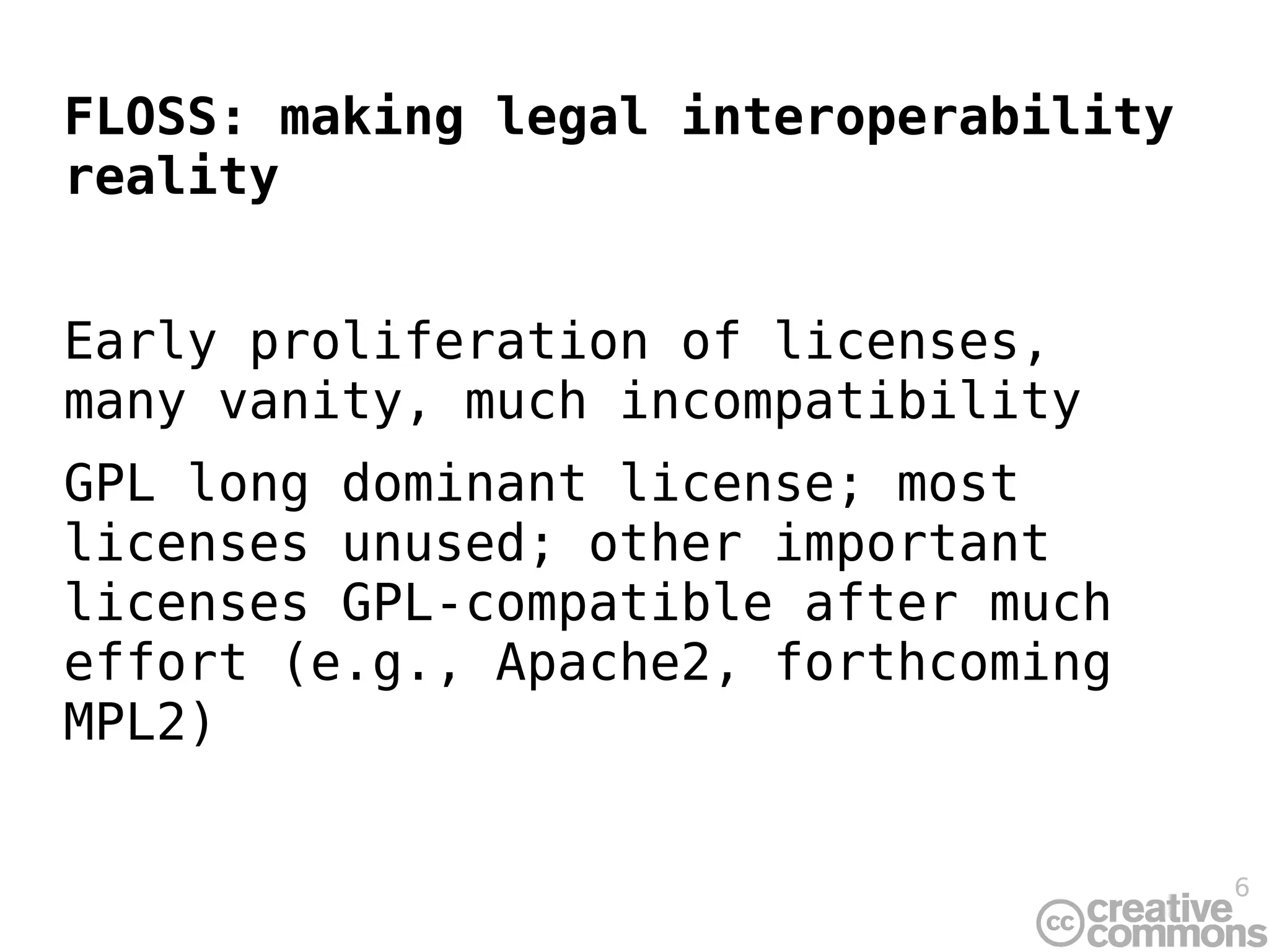
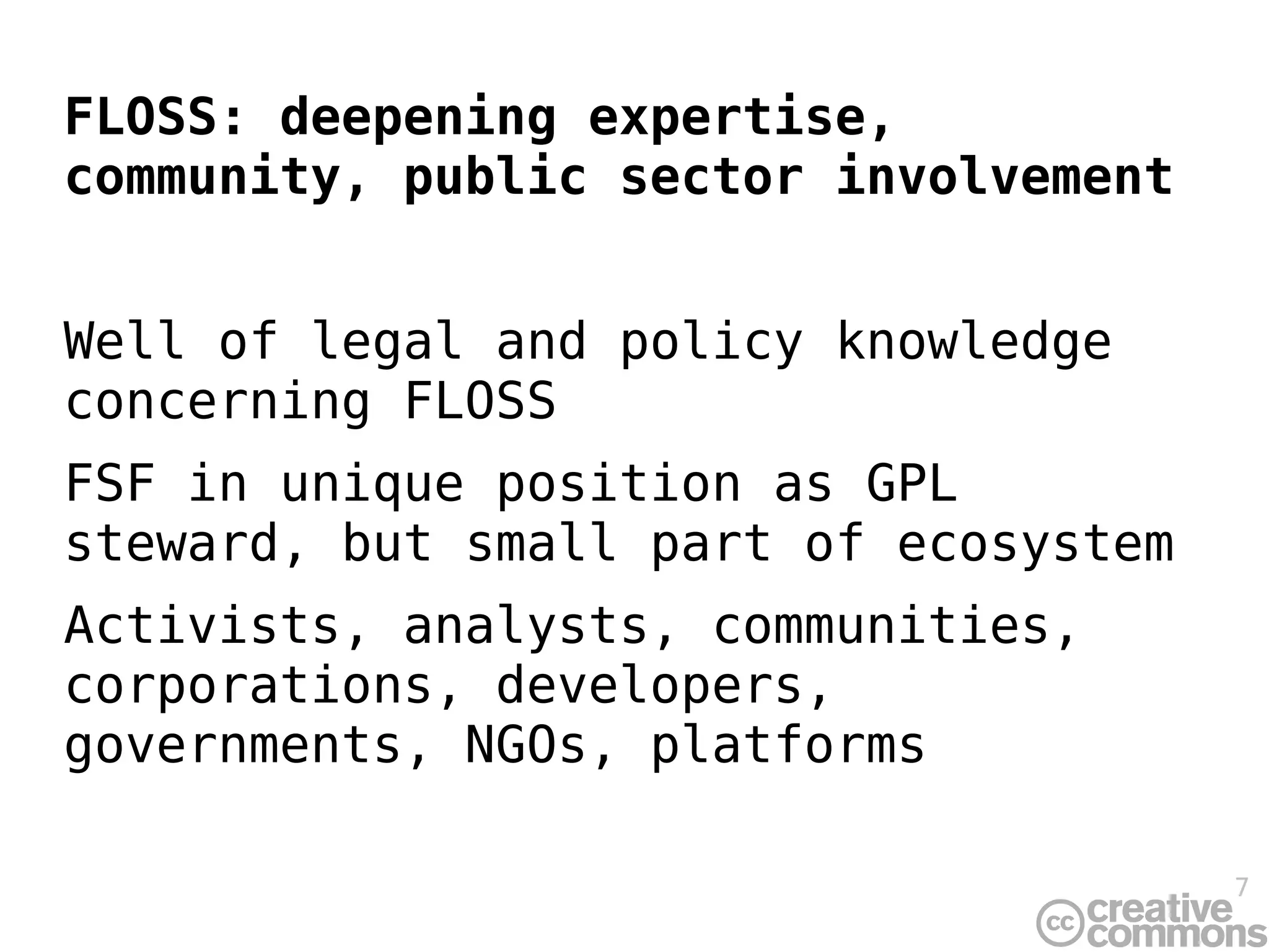
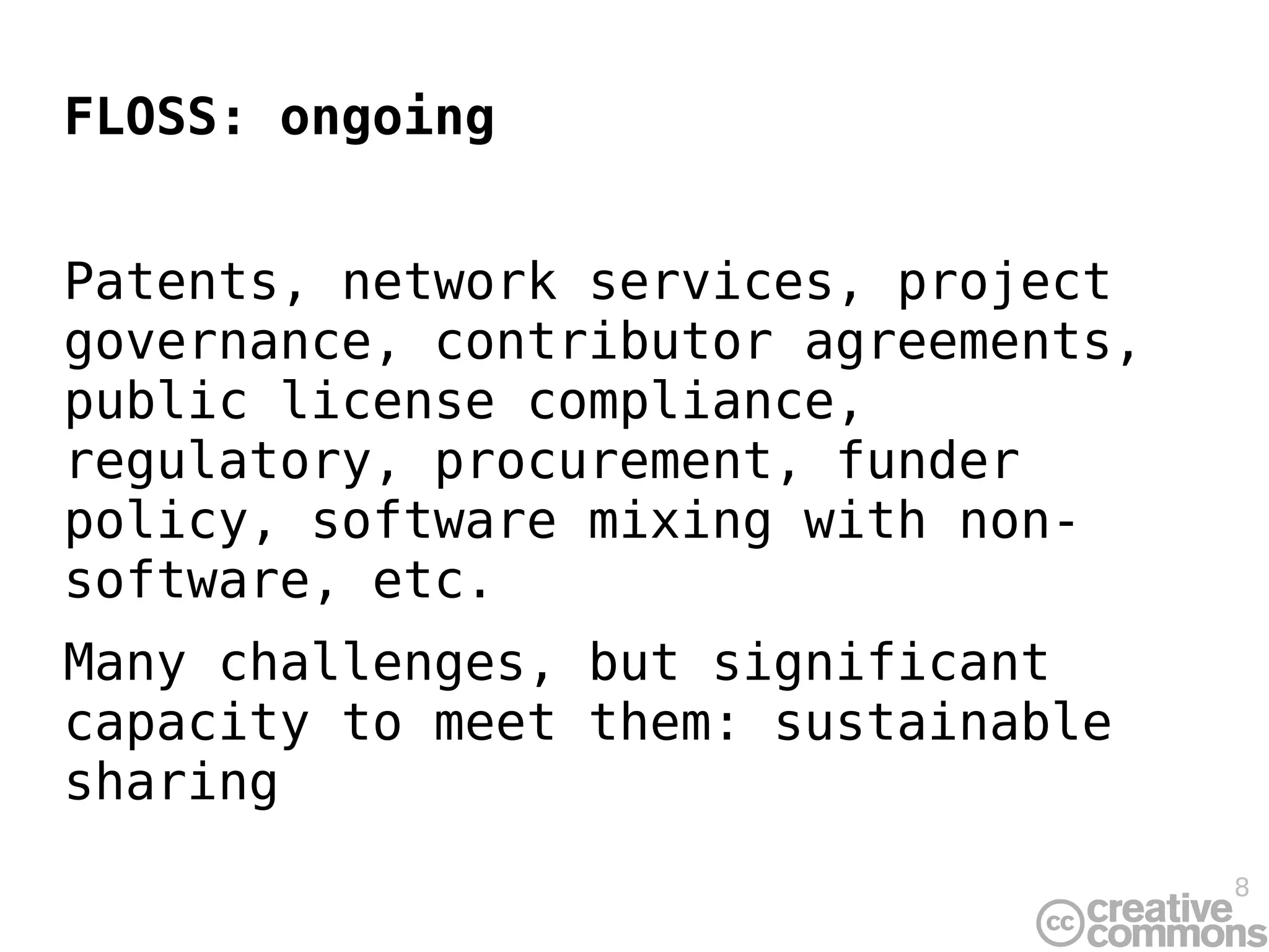
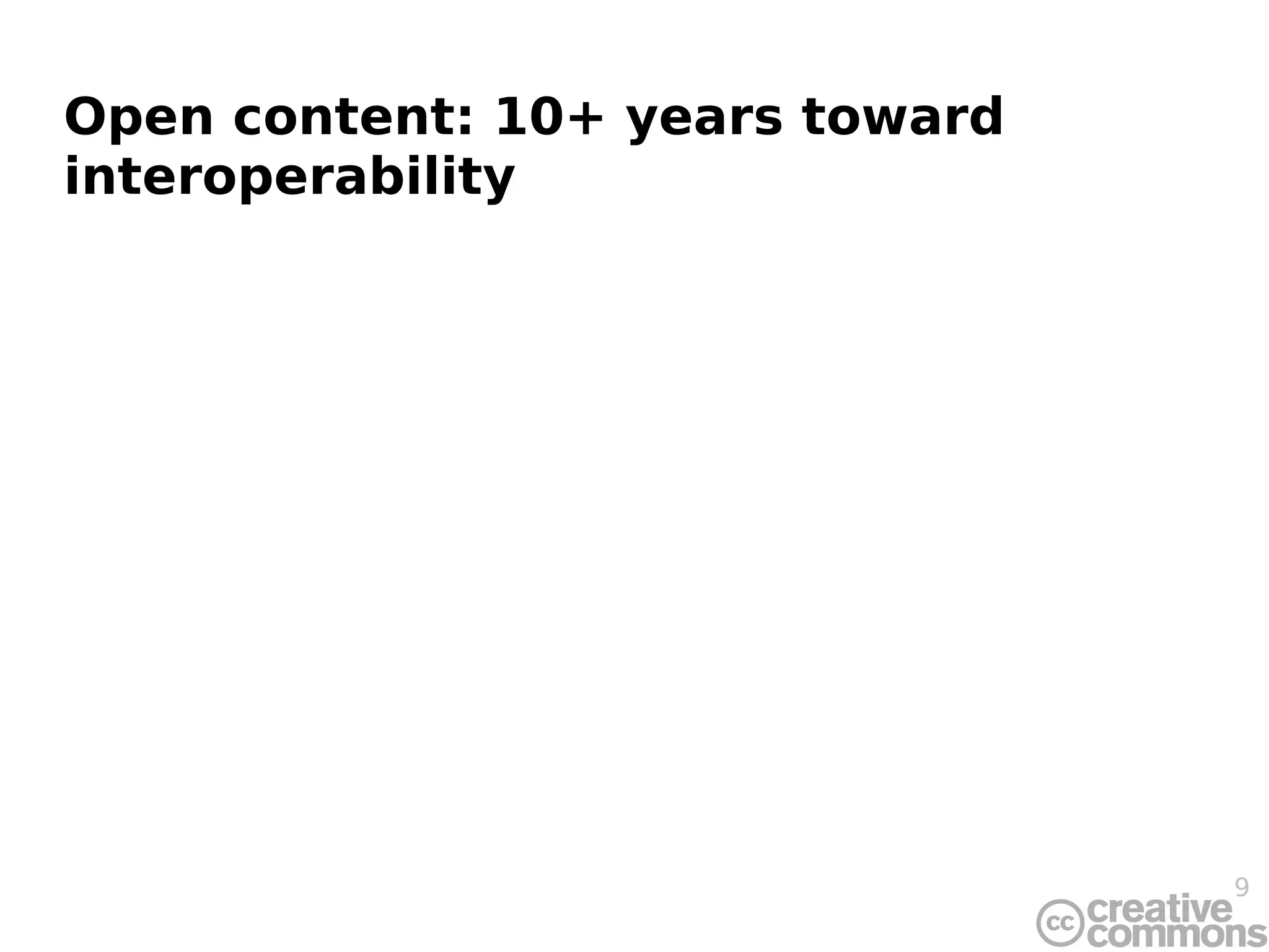
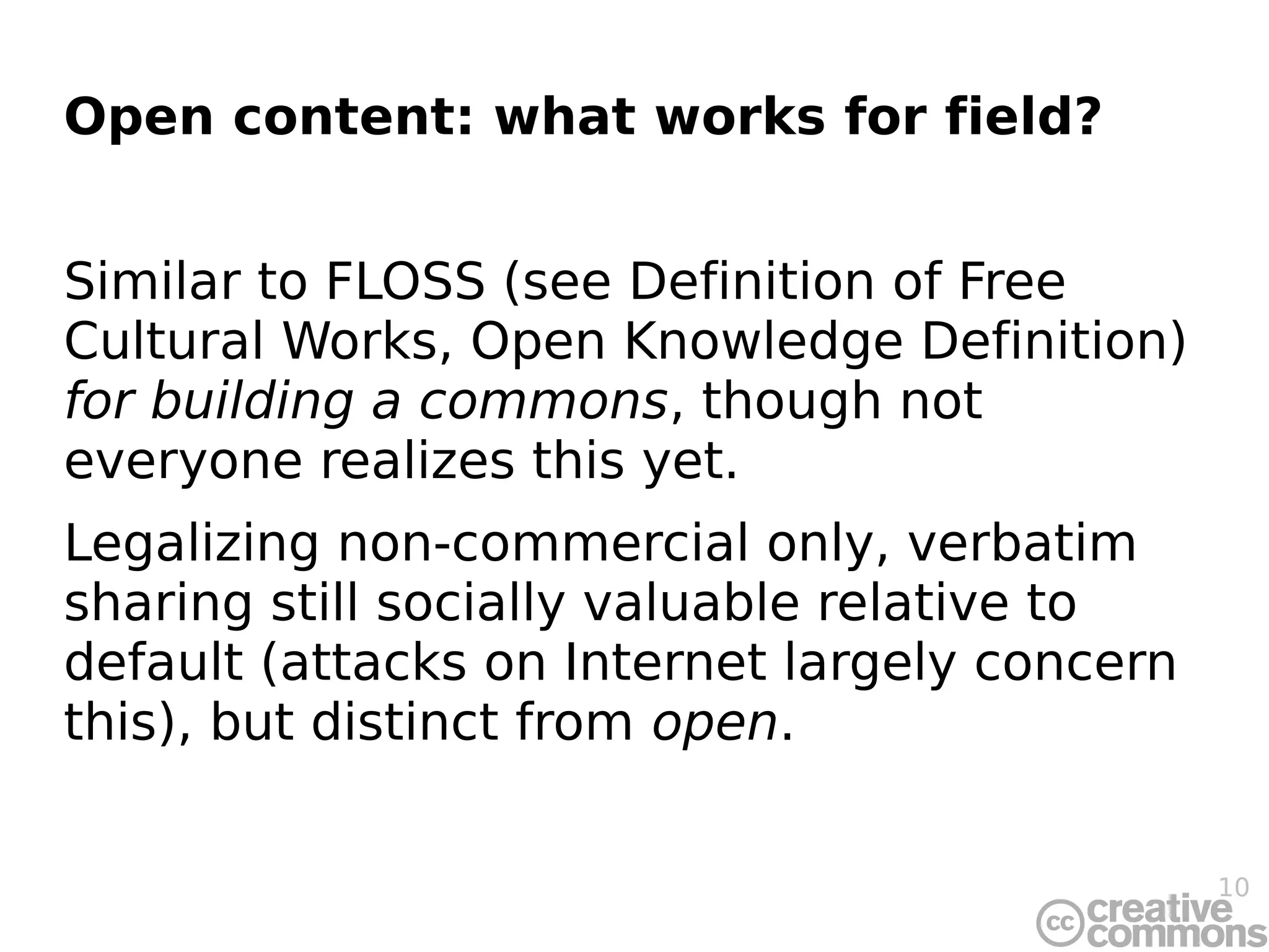
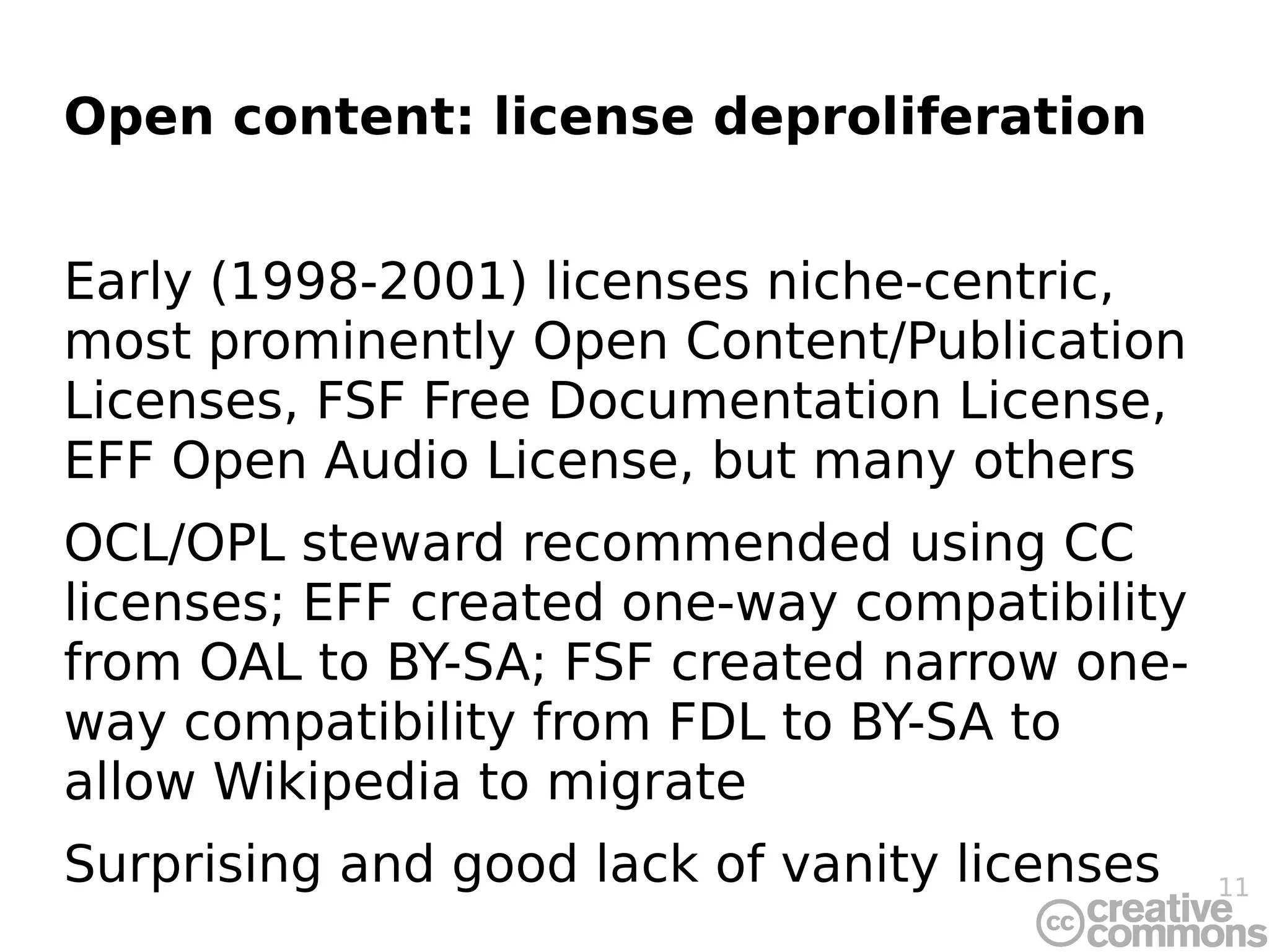
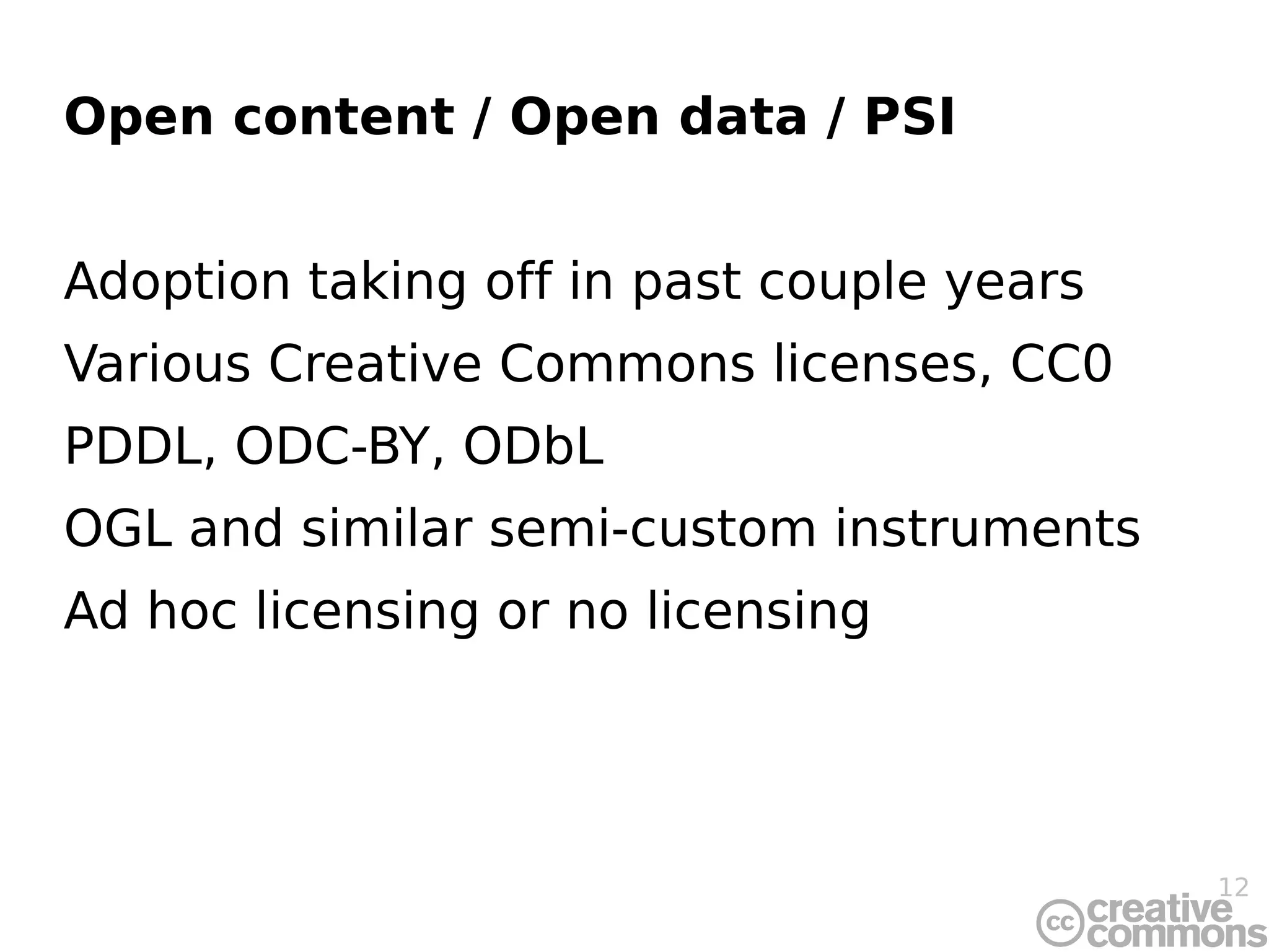
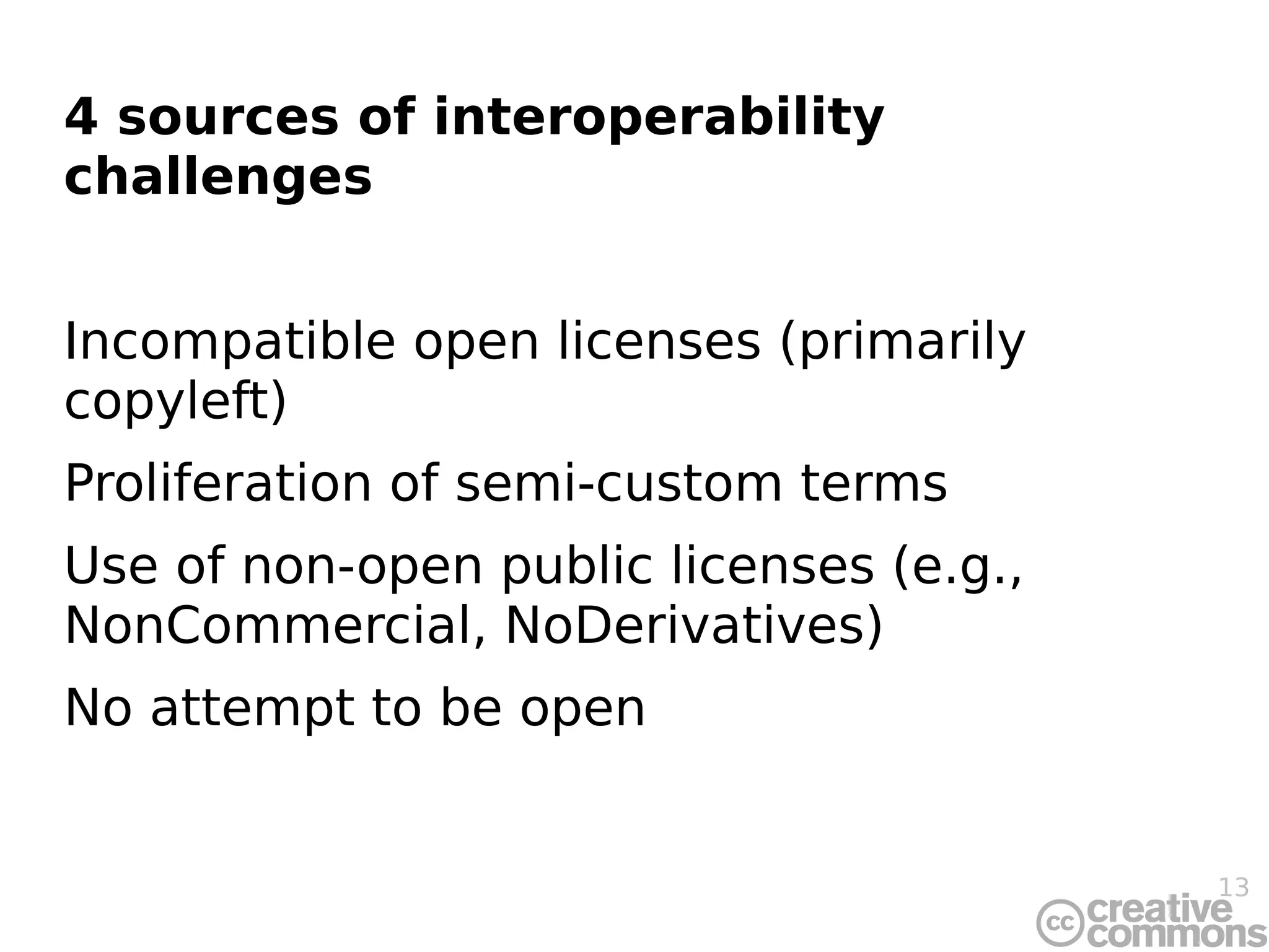
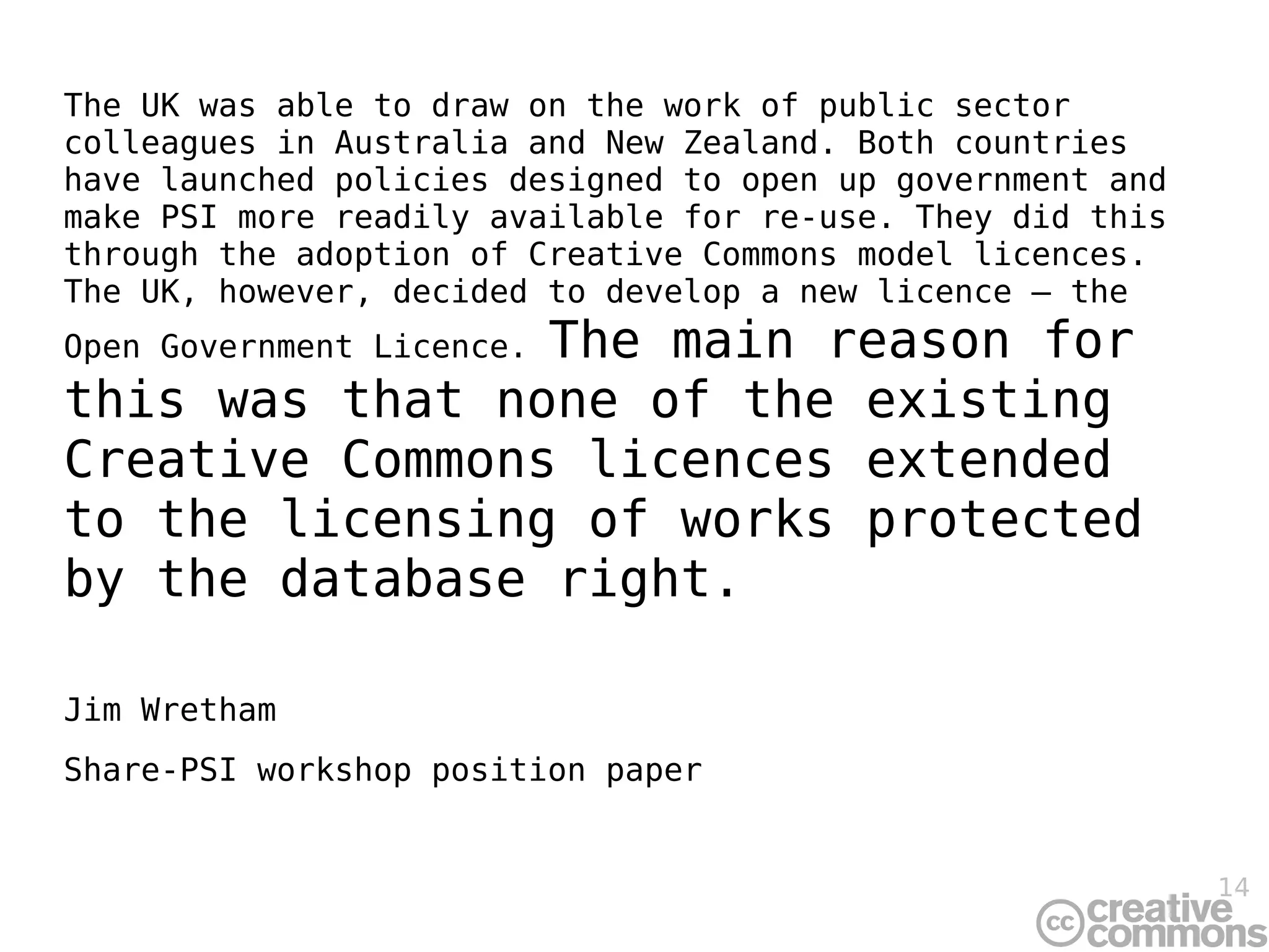
![[E]nabling the true potential of public sector information
(PSI) requires a cross-border and cross-sectoral approach
to licensing. Globally successful licensing suites such as
(even
Creative Commons show that this is possible
though the CC-licences might not
always be appropriate for licensing
PSI due to the different national
interpretations of the originality
requirements under copyright
regulation and the existence of
specific rights such as the EU sui
generis database right).
Dr. Katleen Janssen
Share-PSI workshop position paper 15](https://image.slidesharecdn.com/linksvayer-110513141104-phpapp01/75/Linksvayer-15-2048.jpg)
